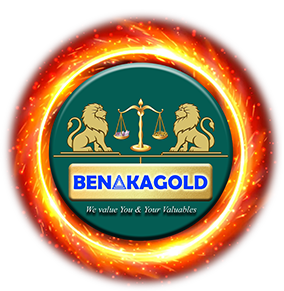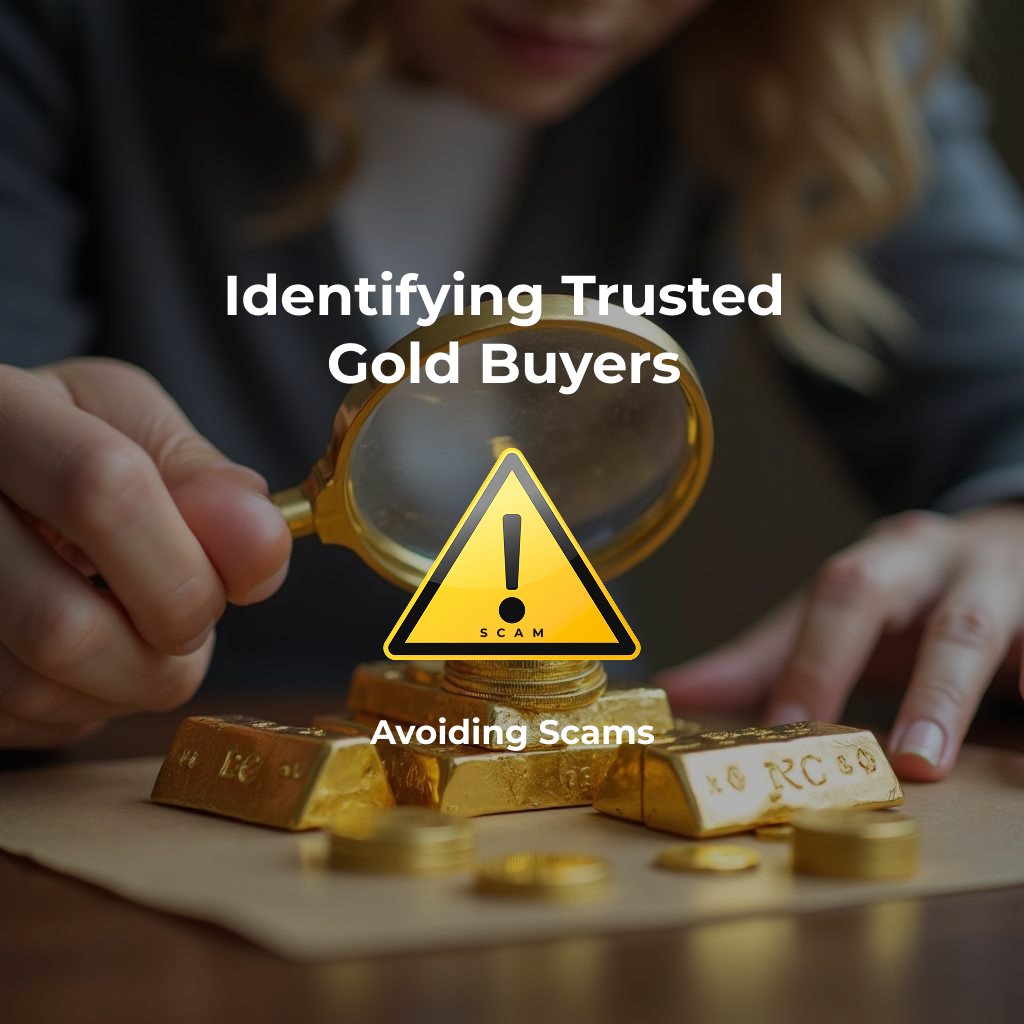Selling gold can feel like hitting the jackpot – turning old jewelry, coins, or scrap into cash. But before you start counting your potential earnings, there’s a crucial step: finding a trusted gold buyer. In 2025, unfortunately, the allure of gold still attracts scammers ready to prey on unsuspecting sellers. Navigating the gold market requires caution and knowledge. This blog post is your essential guide to identifying legitimate gold buyers and protecting yourself from fraud, ensuring you get the fair value your gold deserves.
Introduction to Trusted Gold Buyers: Your Partner in a Fair Transaction
What exactly is a trusted gold buyer? Simply put, they are businesses or individuals who operate ethically and transparently, valuing your gold accurately and providing fair payment without deceptive practices. They prioritize building trust and long-term relationships, not just a quick profit. Finding a trusted buyer is paramount because it directly impacts your financial security and peace of mind. With the right gold buyers, selling gold becomes a smooth, positive experience.
Understanding Common Gold Buying Scams: Know Your Enemy
Knowledge is your best defense against scams. In the gold buying world, common tricks include:
- Lowball Offers: Buyers intentionally undervalue your gold, hoping you’re unaware of its true worth.
- Hidden Fees and Charges: Unexpected deductions are sprung on you during the transaction, reducing your payout.
- False Testing or Grading: Dishonest buyers might falsely claim your gold is of lower purity or quality to justify a lower price.
- Pressure Tactics: Scammers may pressure you to make a quick decision without giving you time to think or compare offers.
- Scales Tampering: Using rigged scales to underweight your gold.
- Bait-and-Switch Tactics: Advertising high prices but then offering significantly less once you’re in the door.
Being aware of these tactics is the first step in protecting yourself.
Researching Buyer Credentials and Reviews: Digital Due Diligence
In 2025, online research is your superpower. Before even contacting a gold buyer, do your homework:
- Online Reviews: Check reputable review platforms like Google Reviews, Yelp, or the Better Business Bureau (BBB). Look for patterns in reviews – are there consistent complaints about low offers, poor service, or shady practices?
- Company Website: A professional website can indicate legitimacy. Look for an “About Us” page, contact information, and details about their services and history.
- Social Media Presence: While not essential, a professional social media presence can offer insights. Check for engagement and customer interactions.
- Online Forums and Communities: Search online forums or communities related to gold or precious metals. People often share their experiences and recommendations within these groups.
Remember, no business is perfect, but a consistently negative online presence is a major red flag.
Verifying Licensing and Certifications: Official Seals of Approval
Legitimate gold buyers often hold licenses and certifications that demonstrate their commitment to ethical practices and industry standards. Look for:
- Local Business Licenses: Ensure the buyer is operating legally within your area. You can usually verify this through your local city or county business licensing departments (often online).
- Industry Associations: Membership in reputable precious metal industry associations (like the Jewelers Vigilance Committee or similar organizations in your region) can be a good sign. These associations often have codes of conduct and standards members must adhere to.
- Certifications: While less frequent for gold buyers, some may hold specific certifications related to gemology or precious metals assessment.
Don’t hesitate to ask a buyer about their licenses and certifications and verify them where possible.
Evaluating Payment Methods and Offers: How You Get Paid Matters
The payment methods offered and the offers themselves are crucial indicators of a buyer’s trustworthiness:
- Payment Methods: Trusted buyers typically offer secure and traceable payment methods like bank checks, wire transfers, or even cash for smaller transactions. Be wary of buyers who only offer cash, especially for larger amounts, or unconventional payment methods like prepaid cards.
- Comparing Offers: Always get multiple quotes! Contact several different buyers and compare their offers. A drastically higher offer from one buyer compared to others could be a red flag – it might be a bait-and-switch tactic.
- Understanding Gold Pricing: Do some basic research on the current spot price of gold. While buyers will factor in their overhead and profit margins, understanding the base value can help you gauge if an offer is reasonable. Online resources and financial websites provide up-to-date gold prices.
- Transparency in Appraisal: A trustworthy buyer will clearly explain how they are appraising your gold, including the weight, purity, and current market price. They should be willing to show you their scales and testing methods if you request.
Importance of Transparent Pricing Structures: No Hidden Agendas
Transparency is key. A trusted buyer will be upfront about their pricing structure:
- Clearly Stated Fees: Ask about any fees or commissions upfront. A legitimate buyer will be transparent about any charges for refining, assaying, or handling. Avoid buyers who are vague about fees or only disclose them later in the process.
- Real-Time Pricing: They should base their offers on current, real-time gold prices, not outdated or arbitrary values.
- Breakdown of Offer: They should be able to provide a clear breakdown of how they arrived at their offer, including the weight of your gold, the purity assessment, the current gold price, and any fees deducted.
If a buyer is hesitant to explain their pricing or seems to hide information, it’s a major warning sign.
Recognizing Red Flags in Transactions: Trust Your Gut
Even with research, red flags can appear during the transaction itself. Be alert for:
- High-Pressure Sales Tactics: Being rushed to make a decision is a classic scam tactic. A trusted buyer will give you time to consider their offer and get other opinions.
- Vague or Evasive Answers: If a buyer is hesitant to answer your questions directly or gives vague responses about their processes, be cautious.
- Unprofessional Demeanor or Location: While not always definitive, be wary of buyers operating out of temporary or unprofessional locations (like hotel rooms or parking lots) or who exhibit unprofessional behavior.
- Reluctance to Provide Written Documentation: A legitimate transaction should be documented. Be wary if a buyer is reluctant to provide written receipts or agreements outlining the terms of the sale.
- Gut Feeling: Sometimes, your intuition is the best guide. If something feels “off” about a buyer or the transaction, it’s best to trust your gut and walk away.
Seeking Recommendations from Trusted Sources: Word-of-Mouth Wisdom
Don’t underestimate the power of personal recommendations:
- Ask Friends, Family, and Neighbors: Have they sold gold before? Who did they use and would they recommend them?
- Local Jewelers: Even if a local jeweler doesn’t buy gold themselves, they might be able to recommend reputable gold buyers in your area. Jewelers often have established networks and can provide valuable insights.
- Financial Advisors or Estate Planners: If you have a financial advisor or estate planner, they may also have recommendations for trusted gold buyers, especially if you are selling gold as part of estate liquidation or financial planning.
Personal recommendations can provide a level of trust and reassurance that online research alone may not offer.
Final Thoughts on Safe Gold Selling: Empower Yourself with Knowledge
Selling gold in 2025 can be a rewarding experience, but it’s crucial to approach it with caution and knowledge. By understanding common scams, researching buyers, verifying credentials, and staying vigilant throughout the transaction, you can significantly reduce your risk and ensure you get a fair deal for your precious metals. Remember, a trusted gold buyer is a partner in a fair transaction, prioritizing transparency and ethical practices. Take your time, do your research, and empower yourself to sell your gold safely and confidently.
Check out our other blog: Gold Selling Guide 2025: How to Get Maximum Cash for Gold


Leave a Reply